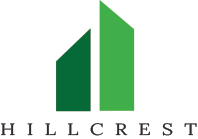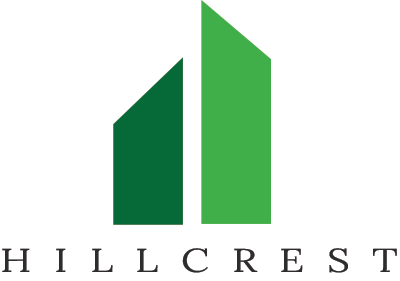An HOA board of directors code of conduct outlines how board members should act while serving their community. It promotes ethical behavior and consistency in decision-making. Every HOA board will benefit from having one, but navigating the creation of one can come as a challenge.
What is an HOA Board of Directors Code of Conduct?
A code of conduct defines the standards expected from HOA board members. It focuses on ethics, responsibility, and professional behavior. It supports better leadership and consistent community management.
This code, also known as an HOA board code of ethics, works alongside governing documents. It doesn’t replace the bylaws or CC&Rs. Instead, it supports them by adding clear expectations for how board members should behave and communicate.
Board members oversee sensitive matters all the time. They handle resident concerns, enforce rules, manage finances, and hire vendors. An HOA board of directors code of conduct can help guide them through these duties. This code can help them avoid bias, confusion, and conflict.
Additionally, a code of ethics can ensure every board member understands their role. It prevents favoritism, misconduct, and poor decision-making. When everyone follows the same standards, the HOA can run in a smoother manner.
What to Include in an HOA Board Code of Conduct
A code of conduct should include rules that apply to all board members. Here are the things to include in a code of ethics for HOA board members.
1. Act in Good Faith
 Board members must act with honesty and integrity. Their decisions must always serve the community’s best interests and not their personal agendas. Even if board members disagree, they must remain respectful and fair.
Board members must act with honesty and integrity. Their decisions must always serve the community’s best interests and not their personal agendas. Even if board members disagree, they must remain respectful and fair.
Acting in good faith also means being open to feedback. Board members should avoid hidden motives and focus on achieving the community’s goals instead. This will help build confidence among homeowners.
2. Fiduciary Duty to the Community
Every board member has a fiduciary duty. They must protect the association’s assets, enforce rules fairly, and avoid personal gain. This includes handling finances with care and avoiding unnecessary risks.
Board members must always put the HOA first, even when it’s inconvenient or would put them personally in a tough position. Personal opinions or friendships should not influence the board’s decisions. They must always act with loyalty to the community.
3. Confidentiality of Sensitive Information
Board members handle private information on a regular basis. This includes financial records, legal matters, and resident complaints. Board members must keep that sort of information confidential. This applies even after they leave the board.
When board members share sensitive details, it can lead to damaged reputations and trust. It could even result in legal action. A strong HOA board of directors code of conduct requires members to protect confidentiality at all times.
4. Avoiding Conflicts of Interest
 Board members must avoid conflicts of interest at all times. If a board member stands to benefit from a decision, they must disclose the conflict and step back from the decision. This ensures that the HOA board can make decisions in a fair manner.
Board members must avoid conflicts of interest at all times. If a board member stands to benefit from a decision, they must disclose the conflict and step back from the decision. This ensures that the HOA board can make decisions in a fair manner.
Conflicts of interest can come in many shapes and forms. Common conflicts include hiring relatives, awarding contracts to friends, or voting on personal matters. Boards members must disclose conflicts immediately. The board can then decide if recusal is necessary.
5. Professional Communication and Behavior
All board interactions must remain respectful. This includes meetings, emails, and one-on-one discussions. Board members should not yell, call names, or use rude language, regardless of the topic. Even if a homeowner is behaving aggressively, board members should remain calm.
Of course, professional behavior is not limited to interactions. It also means showing up on time, listening actively, and following rules. The HOA board sets the tone for the entire community. When members act professionally, others will follow.
6. Respect for Other Board Members and Residents
Disagreements are natural, but disrespect should not be acceptable. As part of the HOA board of directors code of conduct, board members must respect each other even if they have differing opinions. The same goes for homeowners and vendors.
When the board interrupts others, mocks comments, or dismisses concerns, that can show disharmony among the board. The HOA board should always present a unified front to build trust and better relationships.
7. Transparency and Accountability
Homeowners have a right to know what’s going on in their community. The HOA board must be transparent about budgets, decisions, and enforcement. If the board hides information, homeowners are more likely to mistrust them.
Board members must also accept responsibility for their actions. If a mistake happens, they must address it and find solutions. They must be accountable for their decisions, as this shows professionalism.
Furthermore, the HOA board should make sure to document their decisions, disclose records appropriately, and keep homeowners in the loop. There is no room for malicious secrecy in an HOA.
 8. Non-Discrimination and Fair Treatment
8. Non-Discrimination and Fair Treatment
Every board decision must be fair and unbiased. According to the Fair Housing Act, board members must avoid discrimination based on race, religion, gender, or any protected status. The board must treat everyone equally, and the rules must also apply equally to all homeowners.
The Importance of HOA Board Member Ethics
A code of conduct lays down what is expected of board members. It helps prevent bad behavior before it starts. It also provides a framework for handling difficult situations.
Board members come from different backgrounds. Because of this, not everyone has the same view of legal or ethical responsibilities. An HOA board of directors code of conduct will help bridge those gaps as it gives every member the same guidelines.
Having an established standard also eliminates any guesswork. New board members can learn their roles faster and know what’s appropriate and what’s not.
Apart from that, homeowners will also benefit from this code of conduct. With this code, homeowners can know what to expect from their HOA board. They can hold their leaders accountable and keep them in check.
How to Create or Adopt HOA Board Members Code of Conduct
Some HOA communities already have a code of conduct in place, but many others don’t even know where to begin. Here are the steps to creating or implementing a code of conduct for HOA board members.
- Check Governing Documents. The first step is to review the association’s governing documents and state laws. In doing so, the board can ensure that the code doesn’t conflict with them.
- Identify Key Values. Next, the HOA board should outline the key values they wish to uphold. Some examples include fairness, respect, responsibility, and transparency. Identifying these values will help guide the writing process.
- Get Samples. The HOA board can also ask their neighboring communities for a sample copy of theirs. Many HOA management companies also offer templates.
- Draft the Code. Writing the actual code of ethics is the hard part. The HOA board can ask a legal professional for assistance, but it’s important that the language remains easily understandable.
- Review the Code. After completing the draft, the entire HOA board should review the code. Board members should discuss each point and make changes as necessary.
- Adopt and Distribute. Once approved, the HOA board should adopt it through a resolution. Then, the board should distribute it to all members. Homeowners should also get a copy or be able to access the code easily.
- Sign the Code. Current and future board members should sign the code. This is normally done every year to show the board’s commitment.
The Final Word
An HOA board of directors code of conduct can promote fairness, ethics, and professionalism. It’s a good idea for every HOA board to adopt one. When in doubt, enlisting the help of an HOA management company is ideal.
Hillcrest offers HOA management services to communities in Chicago. Call us today at 630-627-3303 or contact us online to request a proposal!
RELATED ARTICLES:
- How To Amend HOA Bylaws And Covenants In Chicago
- HOA Pool Rules Made Easy: Tips For Boards And Residents
- Duties And Responsibilities Of HOA Board Members





